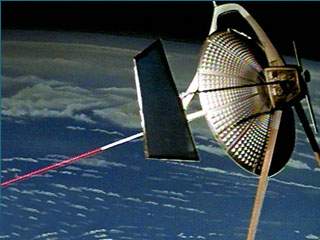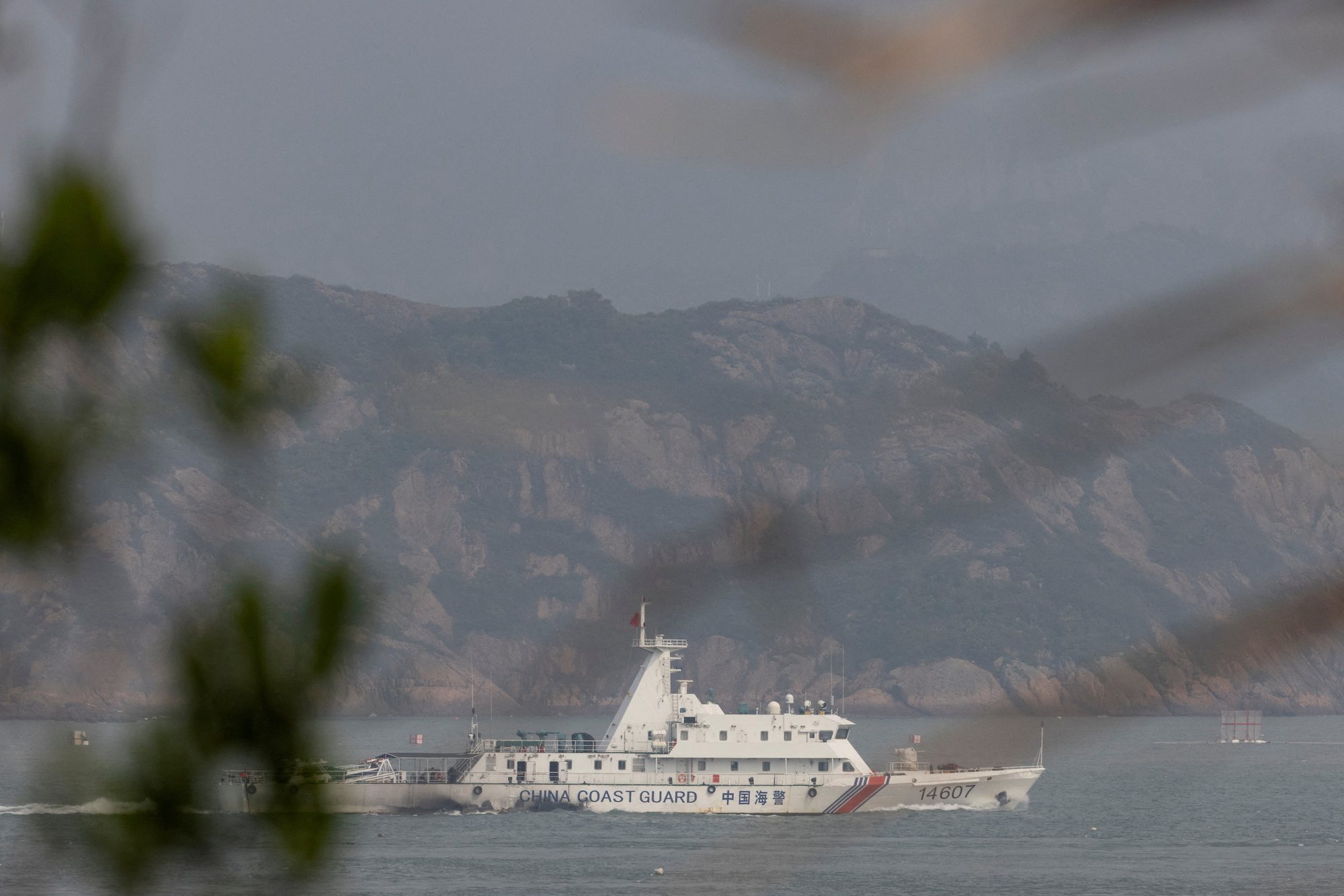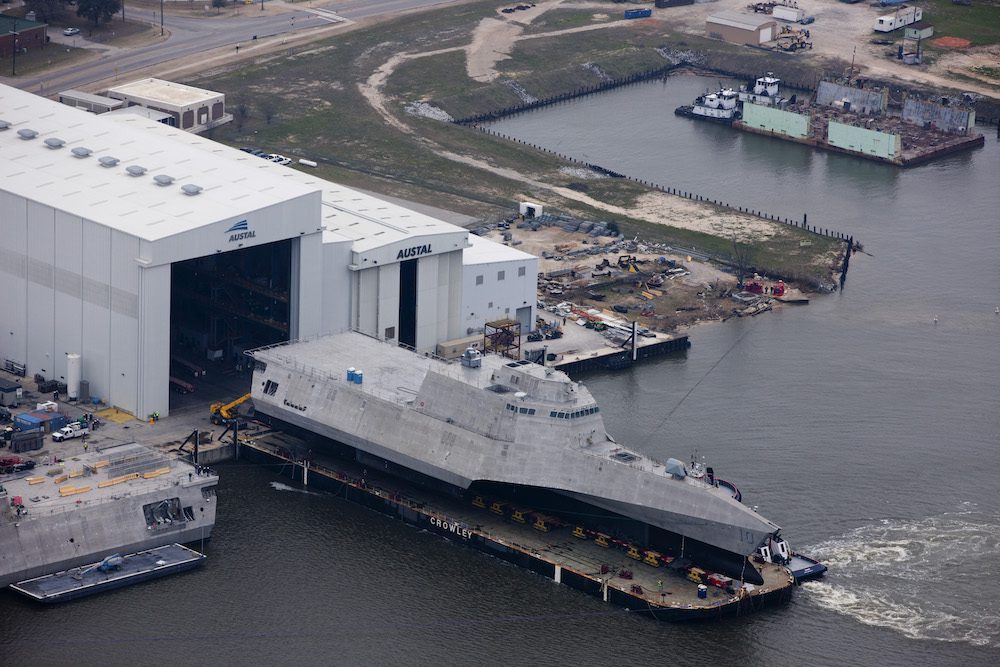A fictional laser satellite from the 1971 James Bond flick, DIAMONDS ARE FOREVER
By Jonathan Saul
LONDON, May 30 (Reuters) – Ships on the world’s busiest waterways face growing threats to their satellite navigation systems, including jamming attacks, prompting Britain and South Korea to deploy back-up devices to avert potential disasters at sea.
South Korea has already experienced waves of signal jamming since 2010 on ships and aircraft, its officials said.
Vessels increasingly rely on systems that employ satellite signals to find a location or keep exact time, including the Global Positioning System (GPS).
Experts say GPS is vulnerable to signal loss from solar weather effects or radio and satellite interference and can also be affected by intentional jamming by criminal gangs, nation states or potentially from militant groups.
“When a ship loses GPS, multiple systems go down altogether and there is nothing which tells the captain this is due to jamming. The danger of a grounding or a collision is then ever present,” said David Last, strategic advisor to the General Lighthouse Authorities of the UK and Ireland (GLA).
“GPS failure on a dark night with low visibility is simply terrifying for a crew,” Last said.
Earlier this year the GLA launched a radio-based back-up system called eLoran in the Dover Strait, one of the world’s busiest shipping lanes. It plans a prototype roll-out of eLoran at another six locations along Britain’s east coast by mid 2014.
The eLoran system works on earth-based radio systems to provide alternative position and timing signals for navigation. Ships need to install receiver equipment.
The GLA said vessels also had to contend with increasing numbers of obstacles such as oil rigs and wind farms.
“Ships are larger these days and pass through hub routes with multiple choke points. They may be in oceans but there are still queues of ships moving through them,” Last said.
“Unless we have e-navigation supported by a resilient back-up system, the risks will grow.”
JAMMING ATTACKS
GPS systems are vulnerable to jamming as disabling devices can be bought cheaply. Criminal gangs have been active on land around the English port of Dover, for instance, disabling trackers on high-value stolen cars. Signal jamming can also be used by countries.
NATO defence ministers will hold a first-ever session on cyber security at talks in Brussels next week.
While its focus has been on protecting its own communication systems, the Western alliance has been looking at expanding its role in protecting vital infrastructure such as ports, electricity grids and pipelines, fearing they are vulnerable to attacks from militants or hackers.
Captain Tim Gallaudet of the U.S. Naval Observatory, citing a U.S. navy sailor recently returned from a deployment in the Middle East Gulf, pointed to signal disruptions close to Iran.
“When transiting near the Iranian territorial sea limit in the northern Arabian Gulf, his ship consistently experienced interference with the vessel’s GPS receivers, almost certainly due to intentional jamming,” Gallaudet told a forum last month.
He did not say who was responsible for the jamming.
“I have navigated in that region on three different U.S. navy ships, and there are numerous oil platforms, areas of shoal water, and of course the Iranian territorial sea limit. So, the importance of assured PNT (positioning, navigation, and timing) capability in the region should be readily apparent.”
Following jamming attacks by North Korea, which South Korean officials say began about three years ago, Seoul saw the need for a back-up system and it is working to deploy eLoran.
During 2012 alone, 1,016 airplanes and 254 ships experienced GPS disruptions during 16 days of jamming by North Korea, Seoul officials said.
Jiwon Seo at South Korea’s Yonsei University, who is working with the government on its eLoran programme, said Seoul expected an initial prototype system in 2016.
“eLoran is a very high-power terrestrial navigation system and it is virtually impossible to jam it,” he said.
“Once the Korean eLoran system is operational, any neighbour countries receiving enough signal strength can use the signals for navigation. If Russia, China, and Japan also deploy eLoran in the future, the eLoran service coverage can be expanded to the entire northeast Asia.” (Editing by Anthony Barker)
(c) 2013 Thomson Reuters, Click For Restrictions
Unlock Exclusive Insights Today!
Join the gCaptain Club for curated content, insider opinions, and vibrant community discussions.

 Join The Club
Join The Club













